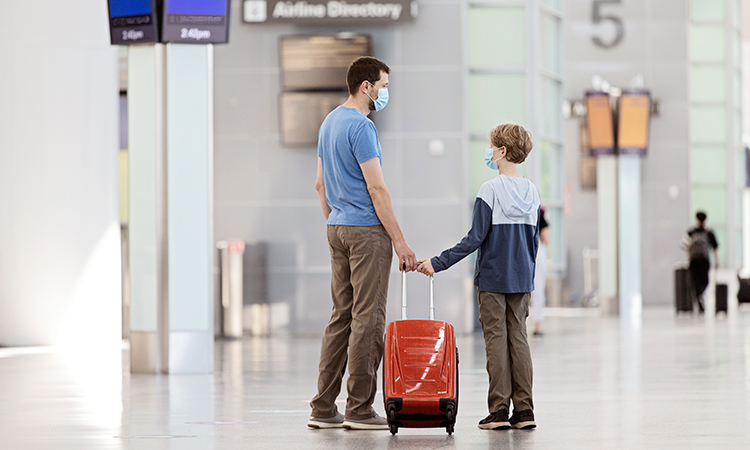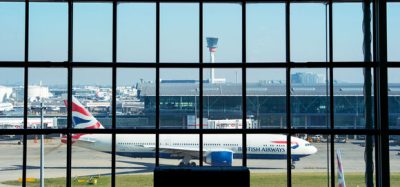Domestic travel improves but international travel remains depressed in April 2021, says IATA
- Like
- Digg
- Del
- Tumblr
- VKontakte
- Buffer
- Love This
- Odnoklassniki
- Meneame
- Blogger
- Amazon
- Yahoo Mail
- Gmail
- AOL
- Newsvine
- HackerNews
- Evernote
- MySpace
- Mail.ru
- Viadeo
- Line
- Comments
- Yummly
- SMS
- Viber
- Telegram
- Subscribe
- Skype
- Facebook Messenger
- Kakao
- LiveJournal
- Yammer
- Edgar
- Fintel
- Mix
- Instapaper
- Copy Link
Posted: 9 June 2021 | International Airport Review | No comments yet
Though domestic travel is beginning to recover from the impact of the pandemic, international travel still remains 87.3 per cent below April 2019.


The International Air Transport Association (IATA) has announced that domestic travel demand improved in April 2021 compared to March 2021, although it remained well below pre-pandemic levels, while recovery in international passenger travel continued to be stalled in the face of government-imposed travel restrictions.
Because comparisons between 2021 and 2020 monthly results are distorted by the extraordinary impact of COVID-19, unless otherwise noted, all comparisons are to April 2019, which followed a normal demand pattern.
Total demand for air travel in April 2021 (measured in revenue passenger kilometres, or RPKs) was down by 65.4 per cent compared to April 2019. This was an improvement over the 66.9 per cent decline recorded in March 2021 versus March 2019. The better performance was driven by gains in most domestic markets.
International passenger demand in April 2021 was 87.3 per cent below April 2019, little changed from the 87.8 per cent decline recorded in March 2021 versus 2019.
Total domestic demand was down by 25.7 per cent versus pre-crisis levels (April 2019), much improved over March 2021, when domestic traffic was down by 31.6 per cent versus the 2019 period. All markets except Brazil and India showed improvement compared to March 2021, with both China and Russia reporting traffic growth compared to pre-COVID-19 levels.
“The continuing strong recovery in domestic markets tells us that, when people are given the freedom to fly, they take advantage of it. Unfortunately, that freedom still does not exist in most international markets. When it does, I’m confident that we will see a similar resurgence in demand,” said Willie Walsh, IATA’s Director General.
“As we enter the peak summer travel season in the Northern Hemisphere, we know that many people want to enjoy their freedom to travel. But, for that to happen safely and efficiently amid the COVID-19 crisis, a more targeted approach is needed. Most government policies today default to the closing of borders. After a year-and-a-half of COVID-19, there is sufficient data for governments to manage the risks of COVID-19 without blanket travel bans,” Walsh continued.
He explained: “We have, for example, strong indications from the U.S. Centers for Disease Control and Prevention, the European Centre for Disease Control and Prevention, the Robert Koch Institute and others that vaccinated travellers pose very little risk to the local population, and data shows that pre-departure testing largely removes the risk of unvaccinated travellers importing COVID-19. UK data confirms that about 98 per cent of arriving passengers detained by universal quarantine orders left confinement with no signs of the disease.”
“Recently, we teamed-up with Airbus and Boeing to demonstrate potential methodologies to manage the risks of COVID-19 to keep populations safe whilst restarting global connectivity. Governments are naturally risk-averse, but successfully managing risk is aviation’s bread and butter. With indications that COVID-19 is becoming endemic, governments and industry must work together to rebuild global connectivity while managing the associated risks. Leadership by the G7 to move in this direction would be a major step forward. Safely restoring travel freedom and reconnecting countries will drive economic growth and job creation,” concluded Walsh.
Related topics
Airport crisis management, COVID-19, Passenger volumes, Regulation and Legislation, Tourism
Related organisations
Airbus, Boeing, Centers for Disease Control and Prevention (CDC), European Centre for Disease Prevention and Control (ECDC), International Air Transport Association (IATA)


















